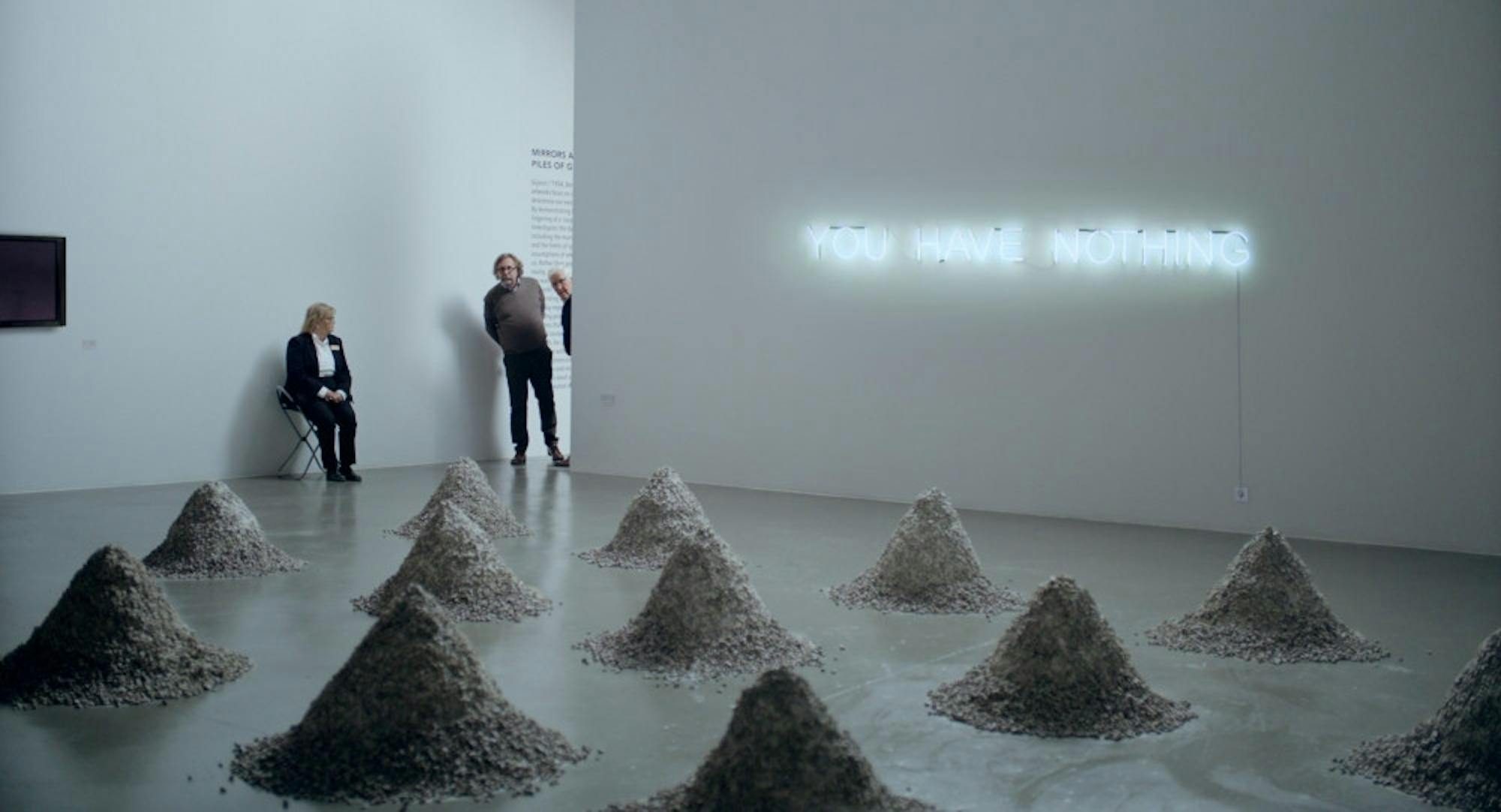
Do you trust people? In our modern age, it’s a question some rarely think about. Our every move is surveilled by technology; our every action is judged by those around us. Yet, when we’re confronted with this notion of trust, it seems that society crumbles under its weight. Swedish director Ruben Ostlund’s innovative, hilarious art world satire “The Square,” which won the prestigious Palme d’Or at this year’s Cannes Film Festival, exhibits that question on a literal museum wall within the film. Patrons entering an exhibit are instructed to go one way or the other depending on their answer to the question — a fitting metaphor for a film that asks the same of its audience in some complex ways.
Christian (Claes Bang) is the curator of a modern art museum in Stockholm. A stylish womanizer with money, charm and a tone-deaf sense of social consciousness, he is in the process of unveiling the season’s hottest new exhibit: “The Square.” Designed by an Argentinian artist, the installation is a flourescent light blue square illuminating a brick floor. As the artist’s statement says, in The Square, “We all share equal rights and responsibilities.” Christian expects it to be a provocative, attention-grabbing addition to the museum, even if his idiotic marketing team seems to think otherwise. Over the course of the exhibit’s opening, he experiences a series of absurdist events that reveal his — and society’s — inherent flaws. His phone is stolen, he sleeps with a reporter, Anne, (Elisabeth Moss) and has an encounter with a creepy performance artist, Oleg (Terry Notary), among a number of other mishaps.
Simply put, “The Square” is a tour-de-force of comedy and social commentary. It’s a daring work of situational comedy in particular, often lingering on awkward interactions for long stretches, pouring salt in the narrative wounds created by those stretches and reveling in the comic pain. Expanding the breadth of the social probing of his previous film “Force Majeure,” Ostlund is an anthropologist of the modern world, providing myriad observations that raise more questions than they provide answers.
Bang owns the screen with his insecure swagger as Ostlund deflates Christian’s ego like a sagging balloon, but the supporting cast is even more memorable. Moss is at her fiery best as the reporter Anne, sharing with Bang what is perhaps cinema’s most gut-bustingly uncomfortable condom gag. Notary is the most memorable in what will likely become the film’s defining scene, in which his performance artist character Oleg pushes ever too far in his act as a violent ape, ruthlessly attacking a crowd of wealthy dinner guests.
Most films don’t entirely earn their runtimes beyond the 100 minute point, but “The Square” is the opposite case. If anything, its epic runtime of 142 minutes feels borderline incomplete and scrappy. Ostlund’s film is an admirably ambitious one, but it either needed more focus or more time to sit with the collective sociological themes he brings to the viewer’s attention, among them privilege, classism, tribalism, technology, moral righteousness and the role of art itself. Some of those themes feel undercooked as a result, most notably a dialogue on political correctness that appears nearly two-thirds through the film. Among the best developed is an ongoing subplot involving Christian’s feud with a young boy whom he accused of stealing his phone in an immature knee-jerk reaction, brilliantly skewering upper-class guilt. As a result of this developmental inconsistency, the film sometimes feels like a patchwork of thought-provoking quilts that aren’t completely sewn together. Whether or not this breaks the film is on the individual viewer, as it somehow both slights the film and makes it even more intellectually thrilling at the same time.
Throughout the history of cinema, the Cannes Film Festival’s Palme d’Or has served as one of the highest honors a filmmaker can receive in his or her career. Feature Film Jury President Pedro Almodovar and his colleagues awarded this top prize to “The Square” during the festival's 70th anniversary, in what was quickly deemed one of the jury’s ballsiest choices in recent memory, especially after a bout of continuously choosing bland, consensus European dramas of some sort of disingenuous realism (“I, Daniel Blake,” “Dheepan”) for the last several years.
“The Square” raises its middle finger to that kind of unadventurous art cinema and spits in its face, indirectly calling it out as more of the same safety-seeking bourgeois art. It is a film that boldly invites its detractors and challenges its fans in the film community, all doing so without coming across as pointlessly provocative. And for that, even with its logistical hindrances, Ostlund has provided a merrily grand vision of contemporary hell for audiences to cherish, chew on and debate for years to come.
Grade: A-
'The Square' Boldly Goes Where No Comedy Has Gone Before
Courtesy of Platform Produktion








